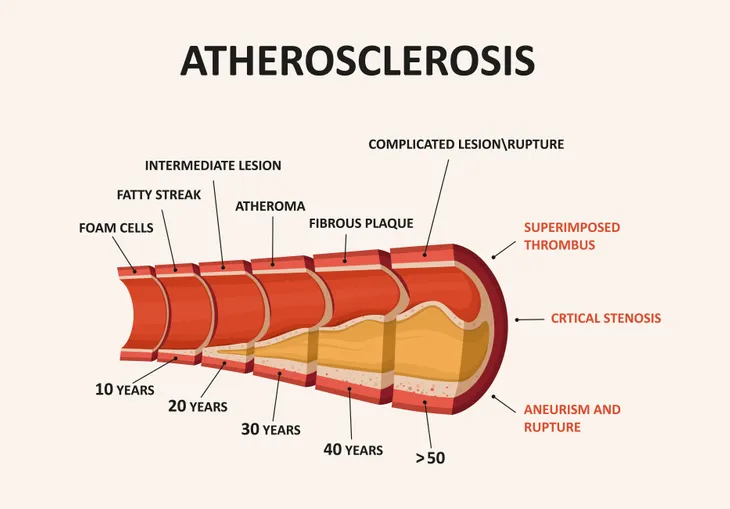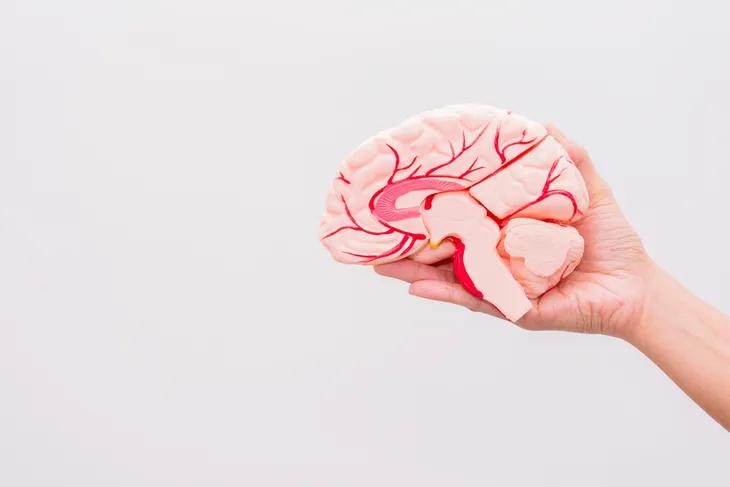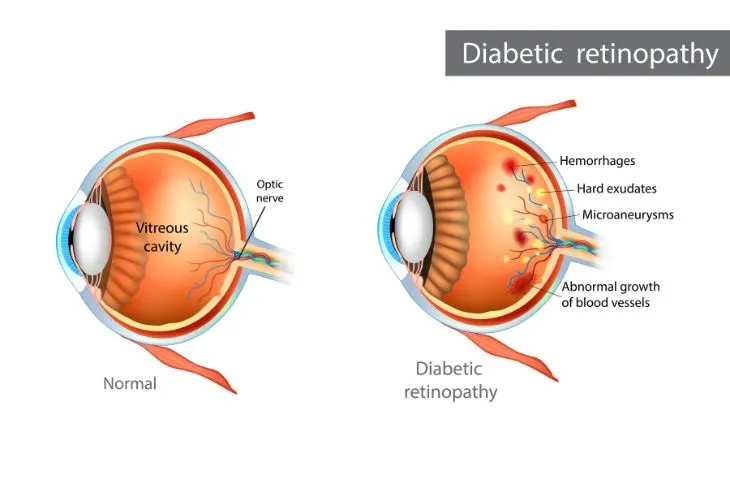- Diabetes is a chronic condition that affects millions of people across America. While it pertains to glucose and blood sugar, it impacts the entire body.
- If diabetes is left untreated, it can lead to serious complications and almost every organ in the body from our skin to our kidneys will suffer.
- The following effects can be avoided or limited by managing the condition alongside a doctor with medication and lifestyle changes.
Diabetes is a chronic condition that affects how the body turns food into energy. According to the Centers for Disease Control and Prevention (CDC), there are over 37 million people in the U.S. living with diabetes. The most common is type 2 diabetes which makes up 90 to 95-percent of cases in the U.S., says Health.com.
So what is diabetes? The CDC explains how the body breaks down the food we eat into glucose, then releases it into the bloodstream. When our blood sugar increases, it signals the pancreas to release a hormone that regulates the amount of glucose in the blood. For people with diabetes, their body doesn’t produce enough of this hormone or use it as well, resulting in too much glucose in the body. This has an impact on the entire body and can lead to serious health problems, including these 12…
Digestive System
Our digestive system is connected to the brain by the vagus nerve. It runs from the brainstem all the way down to the abdomen, explains VeryWell Health. When this nerve is damaged it can cause a condition known as gastroparesis which causes the stomach to empty food much slower than it’s supposed to. So what does diabetes have to do with all this?
High blood sugar levels can damage the vagus nerve which will then affect their stomach and small intestines. According to VeryWell Health, gastroparesis can lead to further complications like dehydration, gastroesophageal reflux disease, malnutrition from the body not digesting food properly, and unpredictable blood sugar levels. Anywhere from 20 to 50-percent of people with diabetes will experience gastroparesis.
Kidneys
Diabetes can also impact how the kidneys function and their ability to filter waste products from the blood, warns Healthline. “If your doctor detects microalbuminuria, or elevated amounts of protein in your urine, it could be a sign that your kidneys aren’t functioning properly,” writes the source.
If a person with diabetes develops kidney disease, it’s called diabetic nephropathy. Unfortunately, the condition usually won’t show any symptoms until it has progressed into its later stages. Anyone with diabetes should have their doctor evaluate them for nephropathy to prevent kidney damage or kidney failure which is irreversible.
Heart
Arguably, the biggest threat to the body from diabetes is the heart. WebMD warns that it can affect the heart and the whole circulatory system. It all starts with high blood sugar levels and the hormone that regulates glucose in the blood. “This sets off chain reactions that force your body to work harder to correct high blood sugar,” writes the source. “But years of diabetes will break down those defenses.”
According to WebMD, diabetes will change how the blood vessels in the muscles work which can weaken the heart, our most important muscle. If the body isn’t using nutrients and glucose well, it will limit the heart’s energy. The biggest risk of this is heart failure which occurs when the heart isn’t pumping blood as well as it should. Another problem that can occur as a result of diabetes is inflammation in the blood vessels and throughout the body. This thickens the blood and raises the risk of blood clots, explains WebMD. “Your blood vessels (endothelium) get inflamed and harmful cells may enter their inner lining,” writes the source. “The damaged endothelium doesn’t expand or relax normally.”
Also, people with diabetes usually have too much triglycerides and LDL (“bad”) cholesterol and too little of the HDL (“good”) cholesterol, says WebMD. This can lead to atherosclerosis which is when inflamed blood vessels trap cholesterol and form plaque in the arteries, making them harder and more narrow. This buildup will restrict blood flow and increase the likelihood of a heart attack.
Your Skin
Our skin is actually our largest organ and diabetes can have a huge impact on it. High blood sugar levels decrease the amount of moisture in the body which puts a person at risk for not only dehydration, but can also cause the skin on your feet to become dry and crack.
To avoid this problem, Healthline suggests completely drying your body after bathing or swimming. Use petroleum jelly or a gentle cream on dry spots, but don’t let them get too moist as this makes them more susceptible to fungal, bacterial, or yeast infections. High risk areas are between fingers and toes, the groin, armpits, and corners of the mouth, says Healthline.
If diabetes isn’t managed properly, it can lead to several different skin conditions, including eruptive xanthomatosis (hard yellow bumps with a red ring), digital sclerosis (thick skin on hands and feet), or diabetic dermopathy (brown patches on the skin), says Healthline. Most of these skin conditions will clear up on their own when blood sugar levels return to normal.
Reproductive System
Pregnancy does all kinds of incredible things to the body, but all these changing hormones can also put a person at risk for gestational diabetes. If this occurs, it increases a persons risk of high blood pressure. Healthline explains there are two types of high blood pressure conditions that can occur during pregnancy: preeclampsia and eclampsia. Most of the time, gestational diabetes can be managed and glucose levels return to normal after the baby is born.
The symptoms of gestational diabetes are similar to other types of diabetes, but may also include repeated vaginal and bladder infections. Healthline warns that people who develop gestational diabetes may also have a higher birth weight which can complicate the birth. It also puts the mother at risk for developing type 2 diabetes later on in life, adds the source.
Brain and Nervous System
Our brain and nervous system are highly sensitive. High blood sugar can affect cognition, specifically thinking and memory, says VeryWell Health. Research into how diabetes affects the brain has also found that it impacts the structure of the brain. “Because of this, people with diabetes are at increased risk of cognitive decline and are 50-percent more likely to develop dementia than those without diabetes,” writes the source.
The source points to studies that have shown people with diabetes have lower levels of gray matter density and volume in certain areas of their brain. This has a huge impact on their nervous system. “Reduced gray matter density or volume can affect a variety of brain and nerve functions,” writes the source. Another potential problem that VeryWell Health points out is that diabetes can damage the small blood vessels in the brain which may lead to stroke or fatally damage the brain tissue.
Pancreas
We already know that the pancreas is linked to diabetes because it’s the organ that produces the hormone that regulates glucose in the blood. As we know, people with diabetes don’t produce enough of this hormone. VeryWell Health explains that type 1 diabetes is the result of a lack of hormone production in the body, whereas type 2 diabetes is when the body builds up resistance to it.
Both types of diabetes put a huge strain on the pancreas to produce more of this hormone than it can or would need to in a normal, healthy body. As a result, VeryWell Health warns that pancreatic cancer can be a result of diabetes, but also the cause. “People with type 2 diabetes are at an increased risk of developing pancreatic cancer, and pancreatic cancer can also lead to the development of diabetes,” writes the source.
Lungs
If a person does not control diabetes with treatment it can have a major impact on lung function. The results can vary from mild conditions like asthma, to more serious complications like pulmonary fibrosis, warns VeryWell Health. It’s still unclear why diabetes can affect the lungs, but health experts believe it might have something to do with inflammation.
VeryWell Health also refers to some studies which suggest the medication used to treat low blood sugar may contribute to lung disease. There is no one way they do this either. One study found that medications can have different effects on the lungs.
Mouth and Teeth
Glucose is not only in our bloodstream, but in our saliva too! If diabetes isn’t controlled, the high glucose levels in saliva can cause harmful bacteria to grow in the mouth. This combines with food to form plaque which can cause tooth decay, cavities, bad breath, or even gum disease, explains VeryWell Health. For people with diabetes, gum disease can be more severe and take longer to heal. It also makes blood glucose levels harder to control, adds the source.
Untreated plaque can turn into tartar which makes it difficult to clean and brush teeth. Gums will likely become swollen and bleed easily which are both signs of gingivitis, warns VeryWell Health. Gingivitis that is able to advance can turn into periodontitis. When this happens the gums pull away from the teeth and form pockets that can become infected. If periodontitis isn’t treated it can cause peoples teeth to become loose and may even require them to be removed.
Eyes
According to WeMD, diabetes is the top cause of blindness in America. This is mainly due to diabetic retinopathy which slowly destroys light-sensitive retina and macula. Both of which we need for good vision, explains the source. Uncontrolled diabetes can also lead to glaucoma and cataracts which contribute to poor eyesight. It’s important for people with diabetes to have their eyes checked regularly.
High blood sugar for long periods of time can lead to blurred vision as the center of the retina swells from leakage and bleeding, explains WebMD. This is called macular edema. When a person develops this condition they may not be able to read small print or even words on signs while driving.
Some people may develop proliferative diabetic retinopathy which is when the retina grows new, abnormal vessels that are “scrounging for food and oxygen,” adds the source. When this happens, the new blood vessels may break and trigger more bleeding which leads to spots that block some of all of your vision. “You could get lumps of scar tissue in your eye. That can cause your retina to detach from the nerve that goes to your brain,” writes WebMD. “If that happens, you can lose your eyesight totally.”
Hearing, Smell, and Taste
Other senses that are at risk from diabetes are hearing, smell, and taste. A diabetes diagnosis can double a person’s chances for hearing loss with prediabetes increasing it by 30-percent, notes WebMD. The reason behind this is unclear, but it’s likely due to nerve damage. This loss may happen slowly and go unnoticed at first. People with diabetes should get their hearing checked.
“Diabetes even affects the nerves that handle these senses,” writes WebMD. If a person is taking the hormone that regulates glucose in the blood, they are more likely to have trouble with their sense of smell. It might also make their food taste “off” or smell scents that aren’t there. “Experts suggest it could stem from nerve damage or a glitch that starts in the brain,” adds the source.
All of this could also be warning signs of issues with thinking skills. WebMD points out that people with Alzheimer’s disease or dementia often report issues with their sense of smell ahead of their diagnosis.
Immune System
People with diabetes may have a weakened immune system because their white blood cells are flooded with glucose. When this happens, they aren’t able to fight off infections as easily, says WebMD. Our whole body needs oxygen and nutrients, even the immune system.
Another characteristic of diabetes that can impact the immune system is poor circulation. People with poor circulation will have wounds and infections that don’t heal as quickly. WebMD warns that people with diabetes are also more likely to suffer complications from the flu which could result in hospitalization. Bottom line, our immune system needs all the help it can get!















